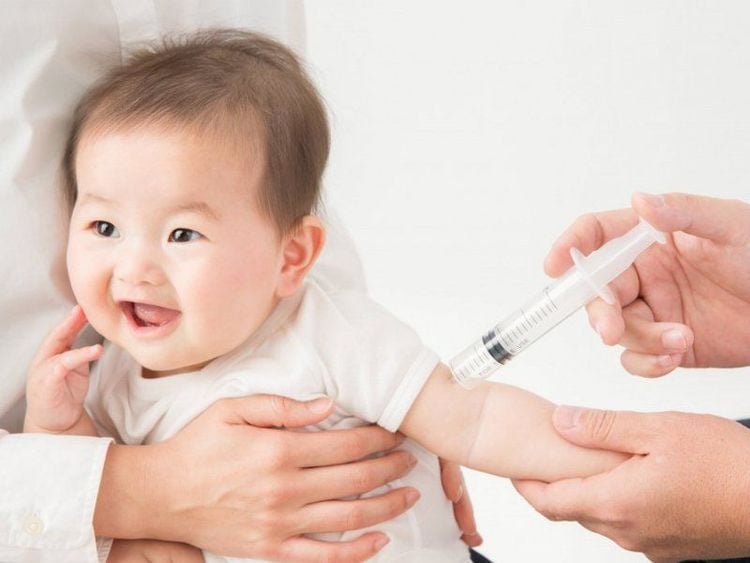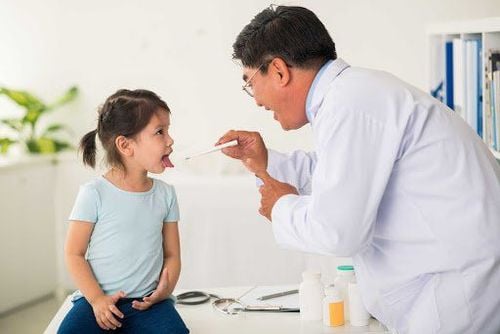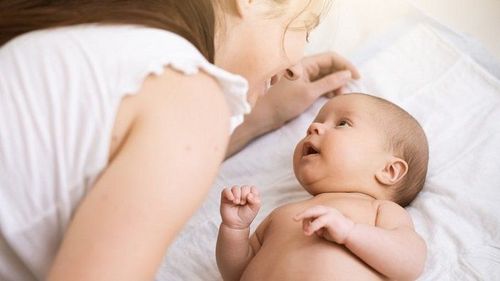This is an automatically translated article.
Parents should send their children to regular health check-ups under the guidance of the doctor, even if the child has no abnormal symptoms. In fact, there are some symptoms of illness in children that are so vague that parents may not be able to spot them. A 3-year-old child's physical examination is one of the most important milestones and should not be overlooked.
1. List of health check-ups for 3-year-old children
When taking children for regular health checkups, parents often expect the following to take place during the visits:
Measure the child's weight and height to ensure that the child is growing at a steady rate and healthy. Check your child's blood pressure. 3-year-olds can have their blood pressure measured more easily and accurately. Check the child's heart rate and breathing rate. Check your child's eyes and ears. Get vaccinated according to schedule, especially those that your child has missed before. Get tested for TB if your child has any of the risk factors. Check for anemia and blood lead poisoning with a blood test if your child has any new risk factors. Address any concerns about the child's health and safety. Colds are very common among 3-year-olds, especially if they attend daycare or preschool where they come into contact with many children. Scratches and bruises from falls are also common because 3-year-olds are hyperactive.

Trẻ 3 tuổi cần được tiêm vắc xin đúng liều, đủ liều
Answer questions about other issues such as toilet training for children, discipline formation Ask about changes in children's daily routine, especially those in kindergarten. Talk with your child about the activities he or she enjoys, the books he reads and who his friends are, to assess his listening and language skills. For example, if a child talks too loudly or too softly, he or she may have a hearing-related problem. Give your child some simple instructions for them to follow. If your child doesn't follow orders or doesn't seem to hear you, talk to your doctor as soon as possible. Provides insight into 3-year-old child development, character, and behavior. This is the time when the child's personality traits are gradually forming clearly.
2. Questions the doctor may ask when examining a 3-year-old child
Does the child have trouble sleeping? Three-year-olds sleep an average of 12 hours a day, and some still need an extra nap at noon. Toddlers have active imaginations and may have a lot of fear of the dark, strange noises, or being alone. This can make it difficult for your child to fall asleep. While sleeping, they may be awakened by nightmares or nocturnal terrors, which can often appear at this age.
What do children like to eat? Your child needs a varied, healthy diet so he or she has enough energy to use during busy days.
Is the child left-handed or right-handed? By age 3, most children have a dominant hand. Children who are confused about which hand to use may have some coordination problems. The doctor may ask your child to draw on a piece of paper so that you can observe the child.
How do children learn to use the toilet? By now, many potty-training toddlers are used to using the potty, although they will still have "accidents" and may need to wear diapers overnight. In addition, some 3-year-olds are not ready to start toilet training until they are 4 years old.
Does the child play well with others? Three-year-olds often find it difficult to share their toys. The doctor will ask if your child becomes aggressive towards other children, hits or bites to express frustration. The doctor can share some tips for curbing aggressive behavior and suggest ways to encourage generosity in kids.
How does your child react at daycare or with other people? Although children still like their parents more than others, it is easier for them to separate from their parents than when they are 1 or 2 years old. Being away from parents is a sign that a child is maturing emotionally and feels quite safe.

Trẻ có thể mơ thấy ác mộng
What games do children like? A list of activities the child enjoys gives the doctor insight into how the child is growing. Children this age love to play imaginary, for example, pretend to throw a tea party for stuffed animals. Children also tend to enjoy reading, coloring and drawing.
Has the child seen the dentist? The American Academy of Pediatrics recommends that children see a dentist after their first birthday. If your child hasn't been to the dentist yet, now is the time to check his oral health. At this age, children should be brushing their teeth with the help of their parents, twice a day to protect their baby teeth.
Health check-ups for 3-year-olds are necessary for children to start entering a new stage, such as going to kindergarten, kindergarten, and have good health and healthy, equal growth among friends. at the same age. If abnormalities are detected at this stage, the child can be intervened and treated early, which will give the child a better chance of treatment. Parents can take their children to reputable medical facilities with a team of qualified doctors and modern facilities for the most accurate examination results.

Ba mẹ nên đưa trẻ đi khám sức khỏe tổng quát tại Bệnh viện Đa khoa Quốc tế Vinmec
Currently, the general health check-up for children at Vinmec has the following advantages:
The system meets international standards: Meets JCI (Joint Commission International) standards - the world's most rigorous safety standard with criteria Patient-centered, committed to providing safe and quality medical care. Modern facilities and equipment: Vinmec Hospital owns modern facilities and equipment such as PET/CT, MRI, CT 640, the world's leading modern ultrasound machine system, examination room. The medical staff is highly qualified: Before and after the examination, the doctor always consults and enthusiastically explains the examination results to the parents. Limit the use of antibiotics for children: Indiscriminate use of antibiotics has led to an alarming increase in antibiotic resistance. When the baby is sick and needs treatment at Vinmec, doctors will minimize the use for the child Besides, in order to improve service quality, Vinmec International General Hospital now offers a Health Checkup package. general health for children under 18 years of age. This is a comprehensive health check-up package, including a full range of basic functional assessment services for children such as: ear, nose and throat examination, eye examination, assessment of liver and kidney function, heart, lung, blood test, and blood test. hepatitis and nutritional status of the baby.
Please dial HOTLINE for more information or register for an appointment HERE. Download MyVinmec app to make appointments faster and to manage your bookings easily.
Reference source: babycenter.com













